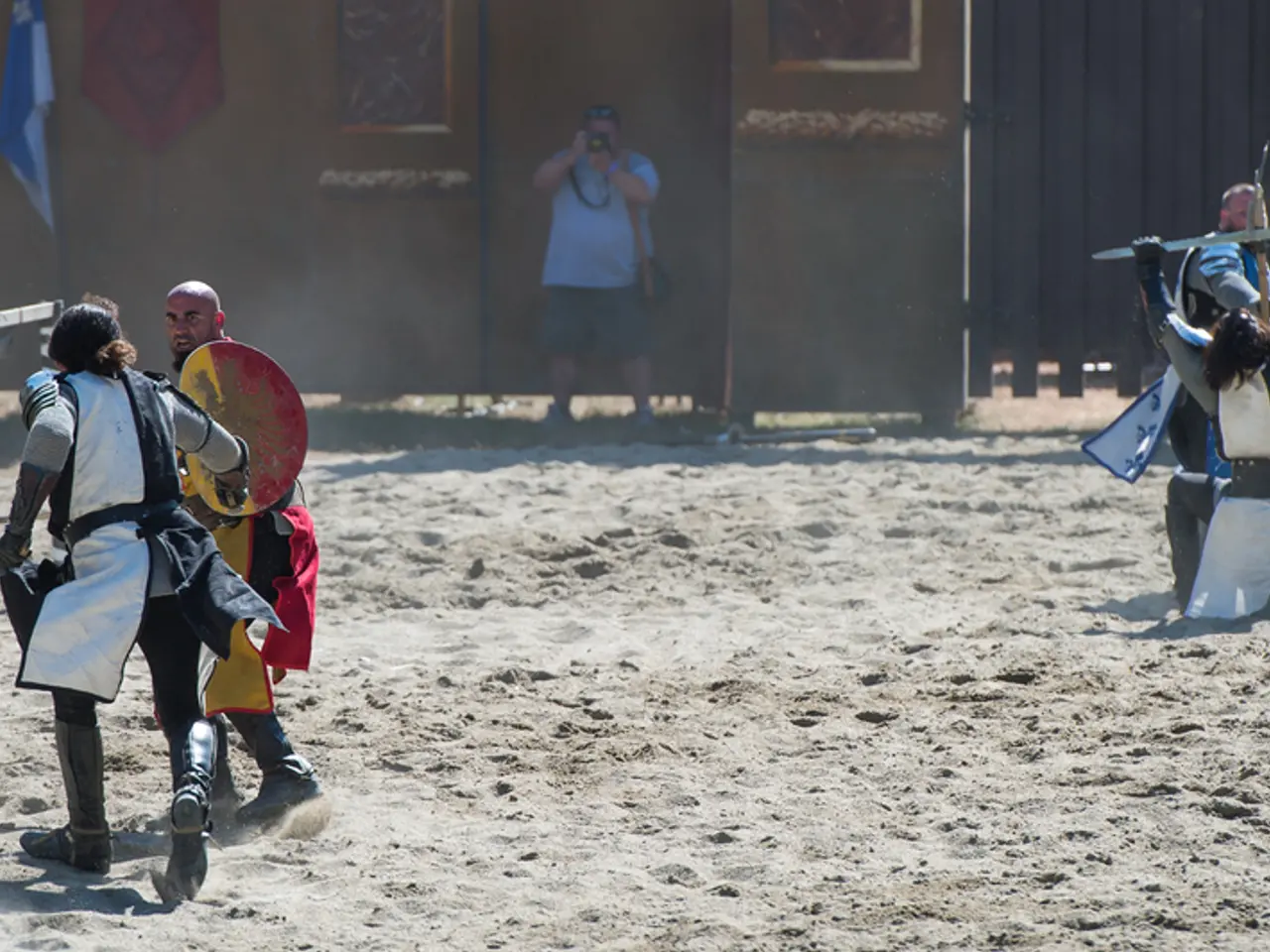Beach Souvenir Turns Out to Be Unexpected Explosive: Mother Discovers Grenade Hidden in Daughter's Memento a Year Later
In the summer of 2024, a young girl discovered an unusual object on a beach near Barcelona, Spain. What appeared to be a rock turned out to be an authentic, decades-old grenade, likely dating back to World War II-era military activity in the region. This incident serves as a reminder of the ongoing risk of unexploded ordnance (UXO) on European beaches.
UXO, which includes bombs, shells, mines, and other military munitions, has a long history of surfacing in beaches across Spain, France, and Italy, due to their long histories of military use dating back to the 20th century. Coastal erosion sometimes causes buried munitions to resurface, posing a threat to beachgoers and hikers.
To identify UXO on European beaches, you should look for unusual objects partially buried in sand or exposed in shallow water, resembling old bombs, shells, mines, or other military munitions. Objects that appear rusted, corroded, or out of place compared to natural beach debris may also be potential UXOs. Warning signs or markers indicating previous UXO clearance or danger zones established by local authorities should also be heeded.
If a suspicious object is found, it is crucial to follow specific handling procedures. First and foremost, do not touch or move the item. Instead, mark the location if possible without getting too close or attempting any removal. Evacuate the immediate area to prevent injury if the device detonates. Contact local emergency services or specialized bomb disposal units promptly. In European coastal countries, bomb squads or Explosive Ordnance Disposal (EOD) teams are trained to neutralize such threats safely.
Authorities might use advanced technology such as drones for detecting and surveying UXO both on land and in shallow coastal waters to ensure safety during clearance. European countries also conduct regular monitoring and public education to prevent accidents, including warning campaigns explaining the hazards and reporting methods.
In the aftermath of the Barcelona incident, local police and safety agencies are now stepping up information campaigns to educate travelers, especially families, about risks on beaches that may not appear in tourist guides. The Mossos d'Esquadra, Catalonia's regional police, were called to remove the grenade, following similar procedures taken by the Mossos' TEDAX bomb unit in other UXO cases.
The discovery of the grenade in the family's home highlights the importance of being vigilant even when not on the beach. If an individual finds something they are unsure about, they should stay away and call emergency services immediately. The device had been sitting in the family's home for nearly 12 months before discovery, emphasizing the potential danger of leaving such objects unattended.
In summary, UXO might be rusted military ordnance found on or under beach sand. Do not touch; evacuate and notify authorities immediately. Specialized bomb disposal teams will safely handle and neutralize UXO. Look for official warnings and follow emergency evacuation procedures if an ordnance is found. By staying informed and following these guidelines, we can help ensure a safer beach experience for all.
- UXO (unexploded ordnance) has been frequently discovered on European beaches in countries like Spain, France, and Italy, and it's crucial to be aware of its potential presence to avoid accidents and injuries.
- Warning signs or markers indicating previous UXO clearance or danger zones established by local authorities should be heeded on European beaches, and any suspicious unusual objects should be reported to emergency services or specialized bomb disposal units right away.





